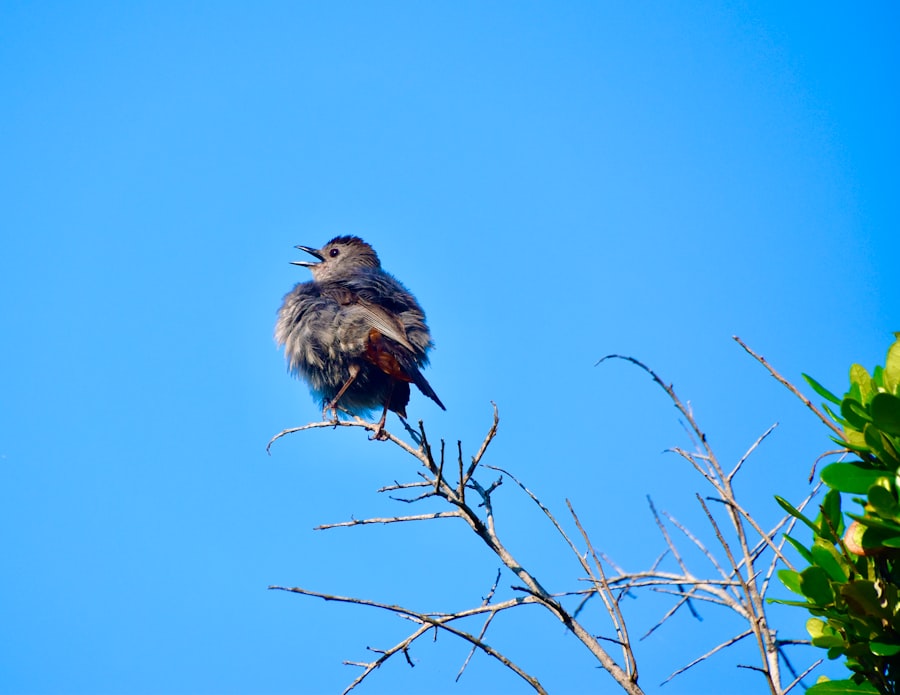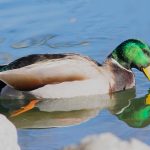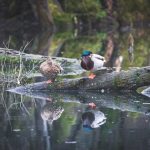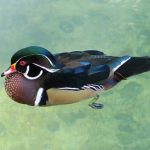Duck herding is a traditional method of herding that has been used for centuries in various parts of the world. It involves using specially trained ducks to move and control livestock, particularly sheep and goats. This method of herding is not only effective but also environmentally friendly, as ducks are natural grazers and can help maintain the health of pastures. Duck herding is also gaining popularity as a recreational activity and a competitive sport, with events and competitions being held in different parts of the world.
Duck herding requires a special breed of ducks that possess certain characteristics that make them well-suited for the task. These characteristics include intelligence, agility, and a strong herding instinct. In this article, we will explore the characteristics of a good herding duck breed, the top three duck breeds for herding, training and handling techniques for herding ducks, the benefits of using ducks for herding, as well as the challenges that come with duck herding.
Table of Contents
Key Takeaways
- Duck herding is a unique and effective method of herding that has been gaining popularity in recent years.
- Good herding duck breeds are characterized by their intelligence, agility, and natural herding instincts.
- The top 3 duck breeds for herding are the Indian Runner, the Welsh Harlequin, and the Khaki Campbell.
- Training and handling herding ducks requires patience, consistency, and positive reinforcement.
- Using ducks for herding can provide benefits such as reduced stress on livestock, improved pasture management, and increased efficiency, but it also comes with its own set of challenges.
Characteristics of a Good Herding Duck Breed
A good herding duck breed should possess several key characteristics that make them well-suited for the task of herding livestock. Firstly, intelligence is crucial for a herding duck, as they need to be able to understand and respond to commands from their handler. Ducks with a high level of intelligence can quickly learn and adapt to different herding situations, making them more effective at their job.
Agility is another important characteristic for herding ducks. They need to be able to move quickly and nimbly in order to effectively herd livestock. Ducks with good agility can easily navigate through rough terrain and keep up with fast-moving animals, making them more efficient at their job.
A strong herding instinct is perhaps the most important characteristic for a herding duck breed. Ducks with a natural instinct to herd will be more motivated and focused on the task at hand, making them more effective at controlling and moving livestock. This instinct can be further developed and honed through training, but it is essential for a herding duck to have this innate drive to herd.
Top 3 Duck Breeds for Herding
1. Indian Runner Duck: The Indian Runner duck is a popular choice for herding due to its upright stance and excellent agility. They are known for their high level of intelligence and strong herding instinct, making them well-suited for the task. Indian Runner ducks are also highly adaptable and can thrive in various environments, making them a versatile choice for herding.
2. Khaki Campbell Duck: The Khaki Campbell duck is another excellent choice for herding due to its high level of intelligence and strong herding instinct. They are also known for their excellent foraging abilities, which can be beneficial when herding livestock in pasture environments. Khaki Campbell ducks are also highly sociable and easy to handle, making them a popular choice for novice herders.
3. Welsh Harlequin Duck: The Welsh Harlequin duck is known for its calm and gentle nature, making it an excellent choice for herding livestock. They are highly intelligent and have a strong herding instinct, making them effective at controlling and moving livestock. Welsh Harlequin ducks are also known for their excellent egg-laying abilities, making them a dual-purpose breed that can be valuable for both herding and egg production.
Training and Handling Herding Ducks
Training and handling herding ducks require patience, consistency, and positive reinforcement. Ducks can be trained using similar methods as dogs, such as using verbal commands, hand signals, and rewards. It is important to start training ducks at a young age to establish good habits and behaviors early on.
When handling herding ducks, it is important to establish a strong bond and trust between the handler and the ducks. This can be achieved through regular interaction, positive reinforcement, and providing a safe and comfortable environment for the ducks. Handlers should also be calm, patient, and assertive when working with herding ducks to establish themselves as the leader of the flock.
It is also important to provide regular exercise and mental stimulation for herding ducks to keep them engaged and motivated. This can include allowing them to free-range in a controlled environment, providing them with toys and obstacles to interact with, and varying their daily routines to prevent boredom.
Benefits of Using Ducks for Herding
Using ducks for herding offers several benefits compared to traditional herding methods. Ducks are natural grazers and can help maintain the health of pastures by eating weeds, insects, and other unwanted vegetation. This can reduce the need for chemical herbicides and pesticides, making duck herding an environmentally friendly option for managing pastures.
Ducks are also highly adaptable and can thrive in various environments, making them well-suited for herding in different types of terrain and climates. They are also less intimidating to livestock compared to dogs or other larger animals, which can help reduce stress and anxiety in the animals being herded.
Additionally, using ducks for herding can be a fun and rewarding experience for both handlers and spectators. Duck herding events and competitions are becoming increasingly popular as a recreational activity and a competitive sport, providing entertainment and education about traditional herding methods.
Challenges of Herding Ducks

While there are many benefits to using ducks for herding, there are also some challenges that come with this method. Ducks can be easily distracted by their natural instincts to forage and explore, which can make it difficult to keep them focused on the task at hand. Handlers need to be patient and consistent in training ducks to maintain their focus during herding activities.
Ducks also require regular maintenance and care to ensure their health and well-being. This includes providing proper nutrition, shelter, and protection from predators. Additionally, ducks can be more susceptible to certain diseases and parasites compared to other livestock animals, so regular health checks and preventative measures are essential.
Another challenge of duck herding is the potential for conflicts with other wildlife or domestic animals in the area. Ducks may be at risk of predation from predators such as foxes, raccoons, or birds of prey, so it is important to take measures to protect them from potential threats.
Conclusion and Final Considerations
Duck herding is a traditional method of herding that offers several benefits compared to traditional herding methods. Using specially trained ducks can help maintain the health of pastures, reduce stress in livestock, and provide entertainment as a recreational activity or competitive sport. However, there are also challenges that come with duck herding, such as maintaining focus during herding activities, providing proper care and protection for the ducks, and managing potential conflicts with predators.
Overall, duck herding can be a rewarding experience for both handlers and spectators when approached with patience, consistency, and proper care for the ducks. With the right training and handling techniques, as well as selecting the appropriate duck breed for herding, this traditional method of herding can continue to thrive as an effective and environmentally friendly option for managing livestock.
If you’re considering raising ducks for herding, you may also be interested in converting a shed into a suitable space for your poultry. Check out this informative article on turning a shed into a chicken coop for practical tips and insights on creating a comfortable and functional environment for your feathered friends.
FAQs
What are the best duck breeds for herding?
Some of the best duck breeds for herding include the Indian Runner, Khaki Campbell, and Welsh Harlequin. These breeds are known for their herding instincts and ability to work well with other animals.
What characteristics make a duck breed suitable for herding?
Duck breeds suitable for herding typically have a strong herding instinct, good temperament, and are able to work well with other animals. They should also be agile and have good stamina for herding tasks.
Are there specific training methods for herding ducks?
Training ducks for herding involves using positive reinforcement techniques, such as treats and praise, to encourage desired behaviors. It’s important to start training ducks at a young age and to be patient and consistent in the training process.
Can any duck breed be trained for herding?
While some duck breeds are more naturally inclined towards herding, with proper training and socialization, many duck breeds can be trained for herding tasks. However, it’s important to consider the individual temperament and instincts of each duck breed.
What are some common herding tasks for ducks?
Common herding tasks for ducks include moving them from one location to another, keeping them together in a group, and guiding them through obstacles or into enclosures. Ducks can also be trained to respond to verbal or visual cues during herding tasks.
Meet Walter, the feathered-friend fanatic of Florida! Nestled in the sunshine state, Walter struts through life with his feathered companions, clucking his way to happiness. With a coop that’s fancier than a five-star hotel, he’s the Don Juan of the chicken world. When he’s not teaching his hens to do the cha-cha, you’ll find him in a heated debate with his prized rooster, Sir Clucks-a-Lot. Walter’s poultry passion is no yolk; he’s the sunny-side-up guy you never knew you needed in your flock of friends!







